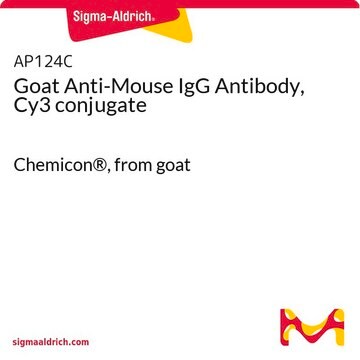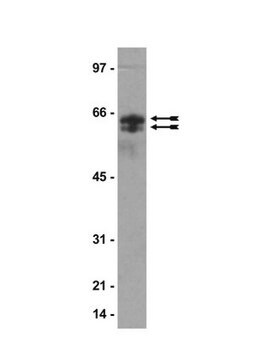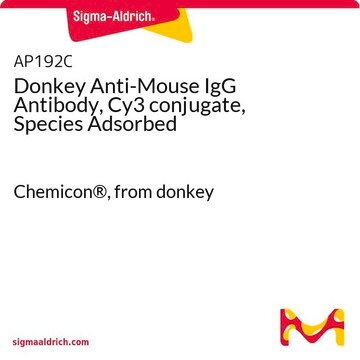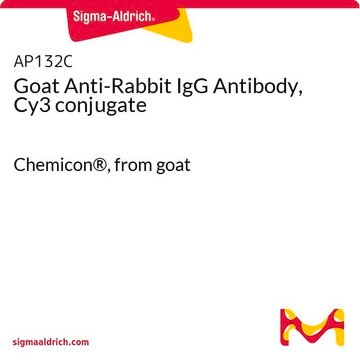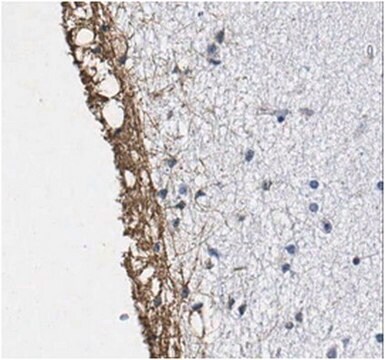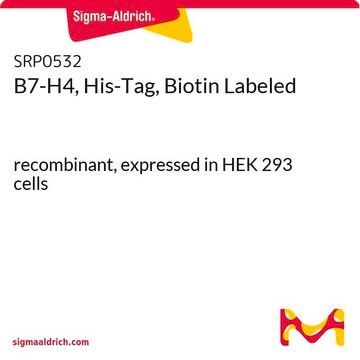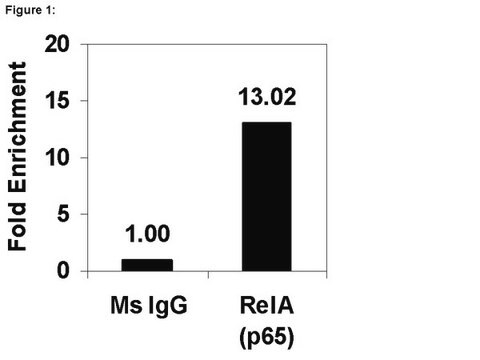AP200C
Goat Anti-Mouse light chain Antibody, Cy3 conjugate
Chemicon®, from goat
Select a Size
Select a Size
About This Item
Recommended Products
biological source
goat
Quality Level
conjugate
CY3 conjugate
antibody form
affinity purified immunoglobulin
antibody product type
secondary antibodies
clone
polyclonal
species reactivity
mouse
manufacturer/tradename
Chemicon®
technique(s)
ELISA: suitable
western blot: suitable
isotype
IgG
General description
Specificity
Immunogen
application
Western Blotting: 1:100 -1:800 of the 1 mg/mL stock
ELISA: 1:100 -1:800 of the 1 mg/mL stock
Optimal working dilutions must be determined by the end user.
Secondary & Control Antibodies
Fragment Specific Secondary Antibodies
Target description
Physical form
Storage and Stability
Legal Information
Disclaimer
Not finding the right product?
Try our Product Selector Tool.
hcodes
pcodes
Hazard Classifications
Aquatic Chronic 3
Storage Class
11 - Combustible Solids
wgk_germany
WGK 3
Certificates of Analysis (COA)
Search for Certificates of Analysis (COA) by entering the products Lot/Batch Number. Lot and Batch Numbers can be found on a product’s label following the words ‘Lot’ or ‘Batch’.
Already Own This Product?
Find documentation for the products that you have recently purchased in the Document Library.
Our team of scientists has experience in all areas of research including Life Science, Material Science, Chemical Synthesis, Chromatography, Analytical and many others.
Contact Technical Service